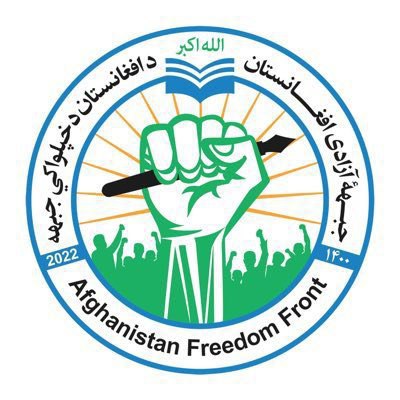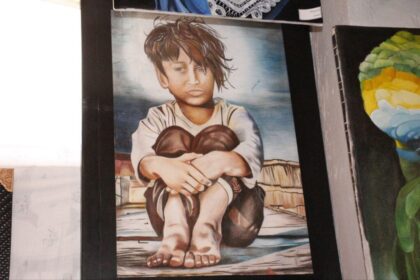RASC News Agency: In a bold and unequivocal statement, the Afghanistan Freedom Front widely regarded as the country’s most active and organized anti-Taliban resistance movement has welcomed the recent issuance of international arrest warrants for Taliban leader Hibatullah Akhundzada and chief justice Abdul Hakim Haqqani. The group, however, insists that these legal actions are merely a first step in the long and necessary journey toward justice. According to the statement released Wednesday, July 9, the Front emphasized that justice for the people of Afghanistan will not be realized until all senior Taliban figures implicated in atrocities are held criminally responsible. The group called on the international community to expand accountability mechanisms to target the wider network of Taliban commanders and officials who, it asserts, are deeply complicit in widespread extrajudicial killings, ethnic discrimination, gender-based persecution, and the systematic dismantling of civil liberties.
“The overwhelming majority of Taliban leadership have actively participated in war crimes, crimes against humanity, and brutal suppression of the Afghanistani population,” the statement read. “They must be indicted, prosecuted, and punished without delay.” The Freedom Front also urged the United Nations, the European Union, and democratic governments around the world to tighten sanctions and impose targeted travel bans and asset freezes on Taliban leaders. It stressed that diplomatic engagement or appeasement of such a regime responsible for one of the most egregious gender and ethnic apartheid systems in the modern world is morally indefensible and only emboldens impunity.
“There can be no meaningful peace or reconciliation while mass murderers and theocratic tyrants operate with diplomatic immunity,” the group added. The group’s remarks followed the landmark announcement from the International Criminal Court (ICC) on Tuesday, declaring that arrest warrants had been issued for Mullah Hibatullah Akhundzada, the reclusive Taliban supreme leader, and Abdul Hakim Haqqani, head of the Taliban’s so-called judiciary. Both are accused of orchestrating systematic crimes against humanity, particularly for their role in the eradication of women’s rights, the persecution of minorities, and the destruction of democratic institutions.
The ICC statement described the Taliban’s policies as “designed to annihilate the public, legal, and political identity of women” and detailed allegations of widespread torture, enforced disappearances, and sexual violence, particularly against female detainees in Taliban-run prisons. The court emphasized that these actions are well-documented and meet the legal threshold for international prosecution. In its statement, the Afghanistan Freedom Front condemned the broader global strategy of engaging with the Taliban diplomatically particularly in international summits held abroad where Taliban figures are invited despite their criminal records and ongoing repression. The group criticized the exclusion of legitimate representatives of the Afghan people from such forums, branding the current approach of some governments and international organizations as a betrayal of Afghanistani civilians, especially women and ethnic minorities.
“The legitimacy of any international initiative is compromised when it elevates war criminals and excludes the voices of those who suffer under their rule,” the statement warned. The ICC’s decision has been met with widespread support from global and regional human rights defenders. Organizations such as Human Rights Watch, Amnesty International, and the Afghanistan Independent Human Rights Commission in exile have hailed the arrest warrants as a long-overdue acknowledgment of Taliban crimes. However, they, too, insist that justice must go beyond symbolic gestures.
Legal experts stress that Taliban leaders, while denying the ICC’s jurisdiction, cannot escape international law indefinitely. Many point to the tribunal’s ability to issue sealed warrants, pursue cross-border arrests, and initiate asset seizures in jurisdictions that recognize the ICC’s authority. “This is a historic moment,” said a senior legal analyst in The Hague, “but justice will only prevail if there is the political will to enforce it.” In predictable fashion, the Taliban rejected the ICC’s jurisdiction, with their spokesperson Zabihullah Mujahid dismissing the court’s actions as “baseless propaganda” and reaffirming the group’s commitment to implementing what it calls “Islamic Sharia” a framework that has, in practice, been used to legitimize gender apartheid, eliminate dissent, and criminalize basic freedoms.
“Justice in Taliban vocabulary is a tool of suppression,” the Freedom Front stated. “Their definition of law is a brutal, patriarchal imposition designed to keep power in the hands of unaccountable men and to erase half the population from public life.” The Afghanistan Freedom Front concluded its statement by demanding international vigilance, legal action, and solidarity with the victims. It reiterated that accountability must be universal, not selective, and warned that any normalization of the Taliban regime is tantamount to complicity in crimes against humanity. “This arrest warrant is a beginning but justice demands more. It demands that every perpetrator of violence, every architect of oppression, and every Taliban commander responsible for the suffering of our people be brought to trial,” the statement concluded.






